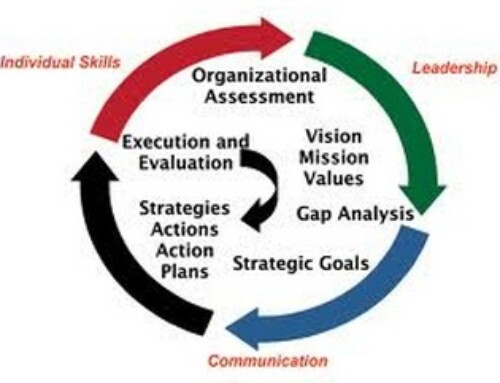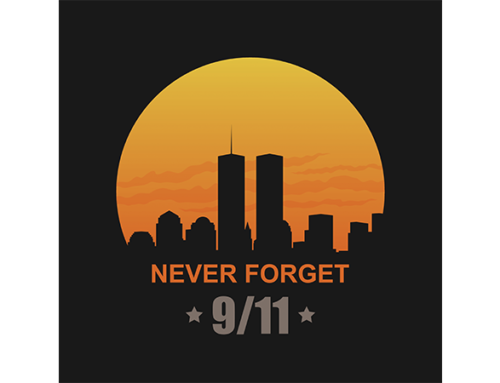Over the past 2 years I have been very involved professionally with a brokerage/franchise model that originated in Europe and recently came to selected areas of the U.S. The name of the company is Engel & Volkers. I have been helping this company understand the US real estate industry, our technology and how they needed to modify their system to successfully enter our market. They did just that in late 2006 in Florida, where they have about 30 licenses. Next they opened in NY and New England in 2007 where they now have about 12 licenses and most recently they launched in California with their first license being signed in Santa Monica. The timing was obviously not the best given the recent economic issues we face but in spite of that they are selling new licenses when many existing franchises are closing offices.
The model is quite different from current U.S. models and while reading through Michael Wurzers blog on the future of the real estate industry, I thought it was worth sharing some of the differences as they tied in nicely with some of the other posts Michael points out. As an aside, Michael’s posts have been fantastic for both his comments and insights but also the great links to widely varying views on the whole topic of the broker/agent model today and in the future. I see the approach this European company is taking in their worldwide and U.S. expansion as tying in nicely with some of the observations made on Michael Wurzers blog, a related post by Rob Hahn and also Danilo Bagdanovic’s post. By all means read all of these posts and those they reference for a better view of the whole topic.
Engel & Volkers began in Hamburg, Germany in 1977. They have been franchised for 10 years or so, and now have licenses on five continents and in 25 countries. There model is quite unique, compared to current U.S. franchise models and I believe their model falls in line with some of the points mentioned by Rob Hahn in his post last month but there are differences as well. Rob points out (from his post):
- I believe that the brokerage of the future will be large enterprises that are consumer-centric, with most of the power shifting back to the broker and away from the agent.
- I believe that the smaller brokerages will become boutique shops, who are allowed to exist because they fill a market niche that the big players do not care to address.
- I believe that agent splits are on the way down, and that the number of real estate agents will be reduced fairly dramatically. At the same time, the top producers will find that they are able to build real wealth by ownership stakes in the enterprise, becoming partners in all respects, resulting in either same or increased income.
- Contra Danilo, I believe that the freedoms that real estate agents and teams currently enjoy are headed to the ash heap of history as the big brands reassert themselves.
What I agree with 100% is companies need to be “consumer-centric” in terms of value but “broker centric” in terms of control. I agree that many shops will operate as boutiques, but not just smaller brokerages. I think even large companies will see the value in slimming down to small groups of professionals. I also agree that agent splits not only are coming down but must come down! These are certainly things that are central to the Engel & Volkersbrand.

The Engel & Volkers brand is aimed at the luxury/high end market. They will list most properties but their brand is designed to appeal the high end buyer/seller. Their belief is that the brand should be neither broker nor agent centric! Rather it should be brand centric. Isn’t that the whole idea of a brand? Brands need to stand on their own so if the individuals operating under the brand leave, die, take a hike, whatever, the brand is still just as strong. So, to do accomplish that, they have build an international brand that treats real estate franchising much like franchises in other industries do. The shop (yes shop not real estate office) is a franchise approved design build around the model of a European boutique.
It isn’t a cookie cutter design but certain elements of the shop are sacrosanct. Design control extends all the way into the shop and covers things like chairs, desks, wall decorations, etc…..just like a real franchise. Anyway, the reason they did this is because they saw a need to control the quality of their face into every market they are in, and the face needed to be one that appealed to “high end” buyers an sellers. So if you go to an Engel & Völkers shop in Germany, Southampton, NY or South Africa, which is where the shops above are located, you are going to see a beautiful, well appointed shop that is consistent with their brand!
Resale Value
In Europe where their brand has been around for many years now the Engel & Völkersbrand has seen resale of shops go for significant dollars. Why, because the brand is not associated with an individual but with the company and the international network. The whole system they have set up is designed so someone else can walk in and business continues as usual. In Europe where real estate standards are much lower than in the U.S. this makes them really stand out. In the U.S. their training and systems may not be better than many of our existing brands but they have done a better job, in my opinion, of treating their shops like a true brand which provides the higher probability of better resale value when that time comes.
Broker Centric Management
Now in terms of broker/agent centric control their model is definitely Broker centric. Agents are not allowed to have photos on their business cards, or run self promotions ads, or even do any advertisement or website that is not strictly “CI” corporate identity because that dilutes the brand. In Rob Hahn’s post he mentions why this is important.
“…What Russell does not take into account, however, in the brand story is how the brand equity was lost. Perhaps the full story will require far more study and research than my little blogpost here, but I submit that the main way that brand equity was lost by Big Brands wasthrough loss of control over the agents.”
On top of that their shops have few agents by US standards, typically 12-15 at maximum capacity. But, the idea is that these need to be high producing agents that fit their brand. They wear suits typically, go to the right clubs, know the right people, etc. And, how is this for different, they usually start at at 50/50 split and move up based on performance to a maximum 75% split! What a concept! The rationale is that the shop costs a lot of money and the broker is managing a lot of the local marketing and the cost of that marketing. Both of these things contributes to putting these agents in front of the high end clientele in their markets and so regardless of the splits they can make more money..at least that’s the plan.
Property Shops in High End Areas – What happened to virtual offices?
A couple of other big differences in this franchise’s approach is their property shop concept and where they put them? Offices in general are not that big a deal to most real estate companies today except as status symbols and maybe a nice place to have a meeting.Engel & Volkers has taken the approach, and quite successfully it would appear, that these high end shops are their face to the community they serve. They need to have a certain look and feel, as mentioned previously, but also they need to be in an A+ pedestrian location near high restaurants, salons, fine clothing stores, coffee shops, etc., because these are the places people with money go on a regular basis….and they want their shops to be in pedestrian areas so the right people walk by all day and see their local and international properties over and over. They see the shop as a “marketing concept” rather than just a business expense.
How does this all tie together and what, if anything does it mean for the future of real estate in the US?
Personally I think we are going to see more of a trend toward broker centric models in the future because in the long term, agent branding doesn’t work. It can only work underneath a corporate model that allows it and by definition it is working against the organism that allows it life. Eventually like a parasite, it will suck more and more life from the host until neither host nor parasite is supported very well. I’m not saying they both will die and go out of business, but I think the overall quality has to go down, at least in terms of brand advancement.
I also think that these broker centric models will allow the broker a fairer split. In readingDanilo Bagdanovic’s post on the subject, which is absolutely worth reading, I appreciate the points but have a slightly different take on the subject. Dan, in setting up his argument says:
The current brokerage firm business model has been around since the 1970’s. Its focus is on,
- high commission splits
- tons of junk fees
- brick-and-mortar offices
- branding the brokerage, not the agent
- little support or supervision
- little to no real sales, business or technology training
- having a large number of agents regardless of quality
- ego
I absolutely appreciate Dan’s insights and suggest you read his entire post as it is extremely insightful, especially from the agent viewpoint, but I see it a little differently from my perspective. I think the broker reality today is more like this:
1. Agent favorable commission splits – how many agents do you know at 50/50?
2. Other fees to try to make ends meet – brokers are scrambling to find a way to work with the reduced splits
3. Brick-and-mortar offices ( we agree on this)
4. Trying to brand the brokerage – yes, they do, but it is their company after all
5. Little support or supervision (ever try to herd cats? With the large agent farms and increased agent centric models this is difficult)
6. Little or no real sales, business or technology training (not true for many companies I know but remember, you can bring a horse to water….)
7. Having a large number of agents regardless of quality (this is true, but only because of number “1″ . As their splits have gone down and expenses have gone up, they have been forced to play the numbers game.
8. As they have increased the number of agents to offset lower splits and higher operating costs…and reduced commissions an unavoidable result is loss of control.
9. Ego….sometimes yes and sometimes no.
So, for those companies that think as I do, I think they will move toward smaller, more professional companies in the future, even if they are part of a large franchise. Why? Because if you look at operations today, only a very small percentage of the agents within a company are producing any money anyway so why create a physical structure just to support 90+% of the agents who don’t produce any serious business anyway.
Example
I spoke not long ago with an owner of a ten shop American franchise operation who was looking at the Engel & Volkers franchise. He really liked the branding, their international reach, the broker centric idea, everything but made the observation…”If I go with their franchise I would have to close at least 4 of my offices and get rid of 75% of my agents!” I looked at him at him and said, “So, what’s the problem?” He laughed and acknowledged that the concept of streamlining his operations down to the producers was not a bad idea after all. Now, as far as I know, he did not sign up yet with that franchise but it points out that the owner/brokers in the US are having some of these same thoughts. How can I streamline my operation so that I am:
- 1. In control of my company
- 2. In control of my brand
- 3. Working with agents that produce
Why Agent Centric Models won’t succeed long term
Whether you like it or not, we buy based on brand. The food we eat, the clothes we wear, the cars we drive are all largely a result of brand influence. Agent brands may be able to succeed in a local market for a time but they will never be able to succeed long term in the true real estate market, which in fairness, is the world! The need to be connected internationally is a given. The need to benefit from a clear and consistent brand is hard to argue. The cost of technology and the need to communicate effectively via the web to a wider and wider audience would seem to be next to impossible at the agent/team level. Couple this with the obvious benefits in terms of the capital investment and resale values of a properly branded company and the argument becomes even stronger. Look at any brand in the world that is successful, like Channel, or Mercedes, or Tiffany and you don’t see any franchise owner’s name with the brand, you see the brand. I believe that is also true for the real estate industry. So is Engel & Volkers the model of the future? Will more companies take a similar approach? I’m not sure but it is certainly worth watching a new model in our ranks to see what happens.





Leave A Comment